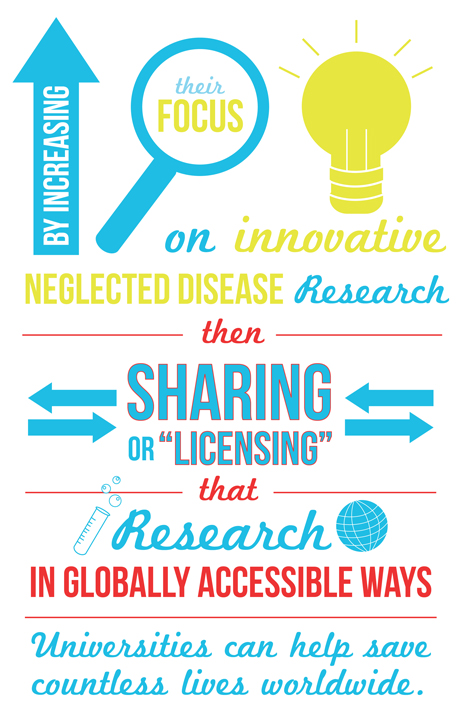
Image credit: globalhealthgrades.org
UBC received the top grade on the University Global Health Impact Report Card by the Universities Allied for Essential Medicines.
The report card assessed 54 leading research universities in the U.S. and Canada on their contributions to urgent global health research and access to treatment worldwide.
More information from the University Global Health Impact Report Card:
Universities are major drivers of medical innovation. Between 1/4 and 1/3 of new medicines originate in academic labs, and universities have contributed to the development of one out of every four HIV/AIDS treatments.
This key research role gives universities huge potential to advance global health. But the size and scope of their impact depends on decisions about where to focus research, how to share new discoveries, and what to teach a rising generation of young global health leaders.
More than 1 billion people worldwide suffer from “neglected diseases” – illnesses rarely researched by the private sector because most of those affected are too poor to provide a market for new drugs. Even worse, 10 million people die each year simply because they can’t get life-saving medicines that already exist – often because those treatments are just too expensive.
Universities can use their unique positions as public-interest, largely publicly-funded research institutions to address both challenges. By prioritizing research on global diseases neglected by for-profit R&D, they can pioneer new treatments that will benefit millions in the developing world. And by sharing their medical breakthroughs under open, non-exclusive licenses or licenses that promote lower prices in developing countries, universities can help poor patients worldwide access new, life-saving treatments.
Some universities are already taking these steps – along with teaching students about the challenges of neglected disease innovation and treatment access. But few have tried to systematically measure universities’ contributions in this vital area. The University Global Health Impact Report Card aims to fill that gap.
To view the full report card and a breakdown of UBC’s top score visit: www.globalhealthgrades.org.